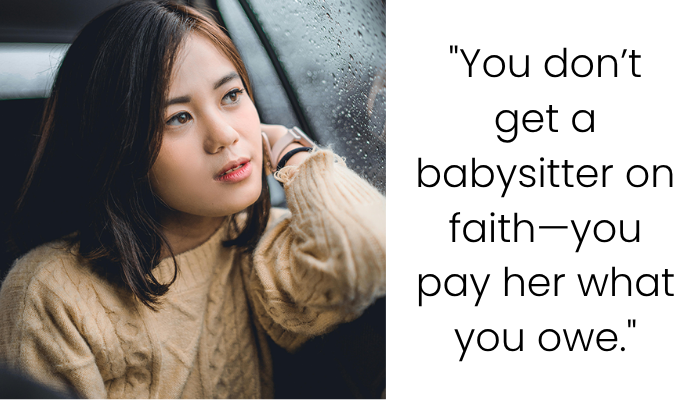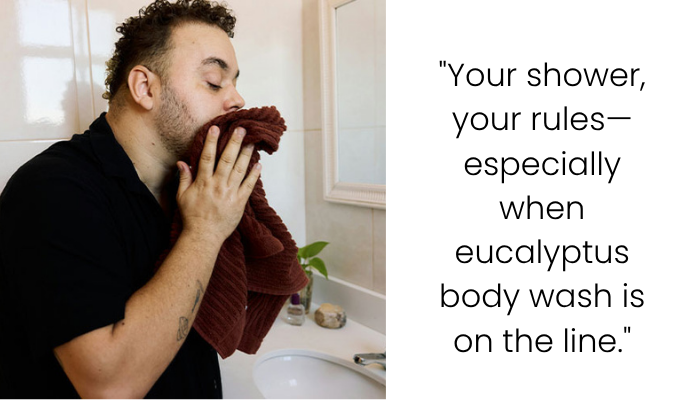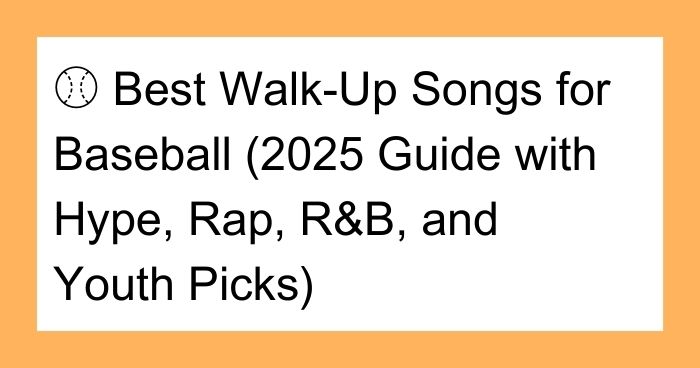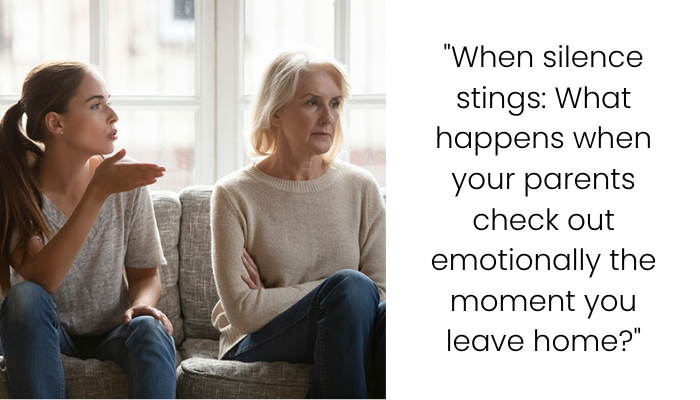Neighbors Stunned as Mom Kicks Teen Out into the Cold—CPS Called Immediately
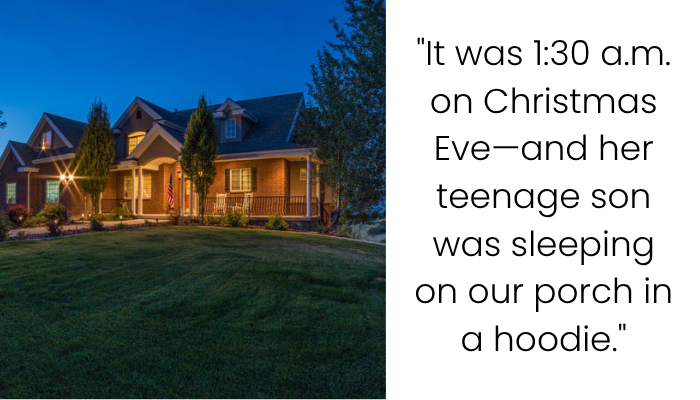
In this compelling AITA post, a 23-year-old woman and her fiancé recount a disturbing incident involving their next-door neighbor and her teenage son. While the relationship with the neighbor has always been frosty, the couple never thought much of it until the neighbor’s parenting style began to raise red flags. The children, both sweet and sociable, frequently engage with the couple—one even leaves flowers on their porch. However, things take a drastic turn on Christmas Eve when the couple returns home late and finds the older child sleeping on their porch bench in below-freezing Michigan temperatures. The teen explains that he was kicked out by his mother for not completing chores.
Advertisement – Continue Reading Below
Disturbed and concerned for the child’s safety, the OP does what she believes is the responsible thing: she calls Child Protective Services (CPS). The following morning, the neighbor confronts her, accusing her of being a “monster” for involving authorities on Christmas. Now, OP wonders if she overreacted, or if she should’ve tried speaking with the mother before escalating the situation.
Child neglect can be a touchy subject, as this woman found out the hard way

She arrived home one icy night to find her neighbor’s teen asleep on her porch wearing nothing but a hoodie and sweatpants







Child Protection, Legal Standards, and Parental Accountability
1. Understanding Child Neglect in Legal Terms
Child neglect isn’t limited to bruises or visible abuse—it also includes failure to provide safe, adequate shelter, supervision, and basic necessities. According to the U.S. Department of Health and Human Services, abandonment or expulsion from the home, even temporarily, without arrangements for basic care can constitute neglect, especially during dangerous weather conditions.
Advertisement – Continue Reading Below
In Michigan, where this incident occurred, the Child Protection Law (MCL 722.621 et seq.) defines neglect as “failure to provide adequate food, clothing, shelter, or medical care.” Forcing a child to sleep outside in winter temperatures, with no safety net, arguably falls squarely into this category.
2. Why the Weather Matters: Exposure Risk and Emergency Standards
In frigid states like Michigan, being outdoors in light clothing during winter—even for short periods—can be life-threatening. According to the National Weather Service, hypothermia can set in within minutes when temperatures fall below freezing. Children and teens are particularly vulnerable due to thinner skin and less body mass.

A case out of Illinois in 2018 saw a mother charged with child endangerment after her child was found sleeping in a car during sub-zero temperatures. Although no physical harm occurred, authorities stressed that potential risk is sufficient to justify intervention.
Advertisement – Continue Reading Below
Your call to CPS wasn’t punitive—it was protective. The child was already experiencing harm through emotional distress and exposure to physical danger. The law typically errs on the side of the child’s safety, not the parent’s feelings.
3. Does Timing Matter? Holidays and “Intent” in CPS Reports
The neighbor’s anger is largely emotional—centering on the timing of your call, not its validity. She argues that Christmas isn’t the time to involve authorities. But abuse and neglect don’t take holidays off. If anything, crisis situations often peak during holidays due to stress, financial pressure, and increased time at home.
A 2020 article in The Atlantic notes that holiday-related family conflicts and escalations are common triggers for emergency CPS calls. Child welfare agencies are well-equipped to differentiate between malicious or vengeful calls and urgent concerns like a child sleeping outside in freezing weather.
Advertisement – Continue Reading Below
By that measure, your decision was not only rational but commendable—you responded with concern in real-time, without dramatizing or inserting yourself unnecessarily.
4. Was a Conversation with the Parent Necessary?
Many people wonder if it’s best to talk to the parent before involving CPS. However, this is not always advisable—especially when:
- A child is in immediate danger
- There’s a risk of retaliation or cover-up
- The adult has previously shown poor judgment or aggression
In fact, CPS guidelines for mandated reporters (e.g., teachers, doctors) explicitly advise against warning parents before making a report, as it can lead to manipulation or intimidation of the child.
Advertisement – Continue Reading Below
Given that the neighbor was already known for rude behavior and had, by her child’s account, expelled her teen into the cold, speaking with her first could have made things worse. You didn’t escalate—you protected.
5. Psychological and Developmental Harm of “Kicking Out” a Teen
Kicking a child out for chores might sound like “tough love” to some, but it can inflict long-term emotional harm, especially when done repeatedly or punitively. According to the American Academy of Pediatrics, such acts of rejection can lead to:
- Anxiety and depression
- Attachment disorders
- Poor academic performance
- Difficulty trusting adults
Furthermore, this tactic teaches that love and shelter are conditional on perfection—a dangerous lesson that can haunt a child well into adulthood. In your case, the teen trusted you enough to remain nearby, which speaks volumes about their sense of emotional safety around you.
Advertisement – Continue Reading Below
6. The Role of a Concerned Neighbor: Bystander Responsibility
There’s a growing social expectation that bystanders should act when they see harm—especially to children. While CPS sometimes receives false or petty complaints, your report was grounded in concern, evidence, and urgency.

Reddit and legal forums are filled with stories where neighbors ignored warning signs—only to regret it later when abuse or neglect was confirmed. In that context, your choice reflects maturity, empathy, and a solid moral compass.
7. The Fallout: Guilt, Justification, and Emotional Recoil
It’s completely natural to feel conflicted after calling CPS, especially when you live next door to the person and have to face them afterward. But remember: CPS’s goal is not to tear families apart. Their primary mission is to assess, intervene where necessary, and provide support. If this is a one-time incident, the mother may receive counseling or parenting help—not lose custody.
Advertisement – Continue Reading Below
And if it’s part of a pattern? Then the children may receive the protection and resources they desperately need. Either outcome prioritizes their welfare.
In the comments, readers swiftly concluded that the woman was not the jerk in the sticky situation and slammed the nasty neighbor for being the actual monster






Final Thoughts
- You acted lawfully and morally by calling CPS when a teen was found sleeping outside in winter.
- You were not obligated to speak to the parent first, particularly in a potential crisis.
- Your neighbor’s feelings don’t override the child’s safety.
- The timing (Christmas Eve) only made the situation more urgent, not less.
- CPS intervention is a tool for protection, not punishment—and that’s what you used it for.
You’re not a monster. You’re a neighbor who looked out for a vulnerable child when they needed it most.

